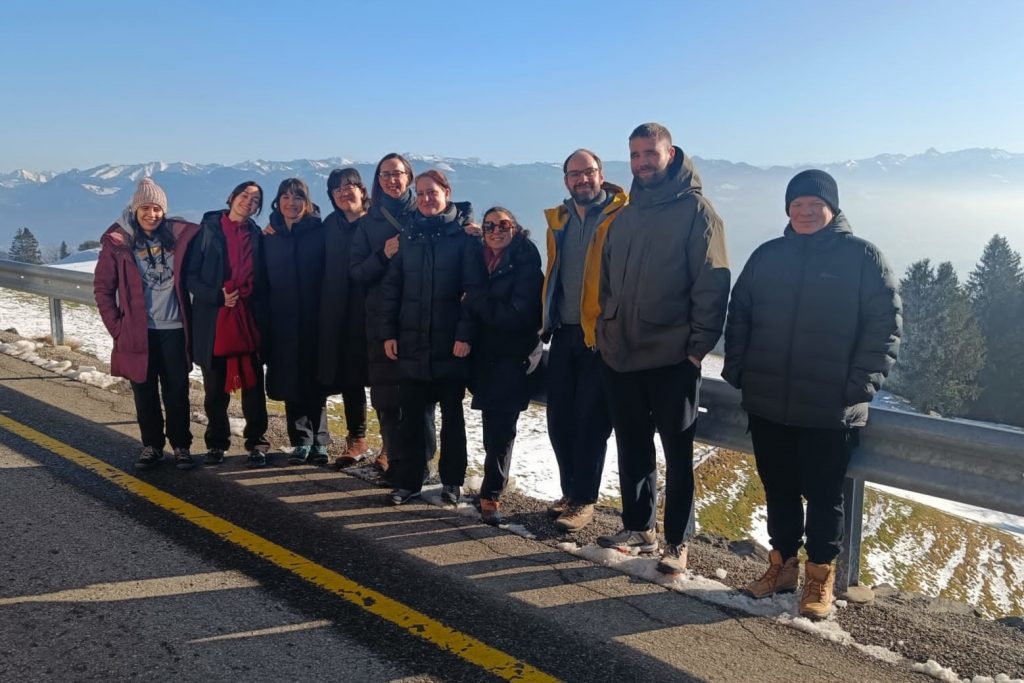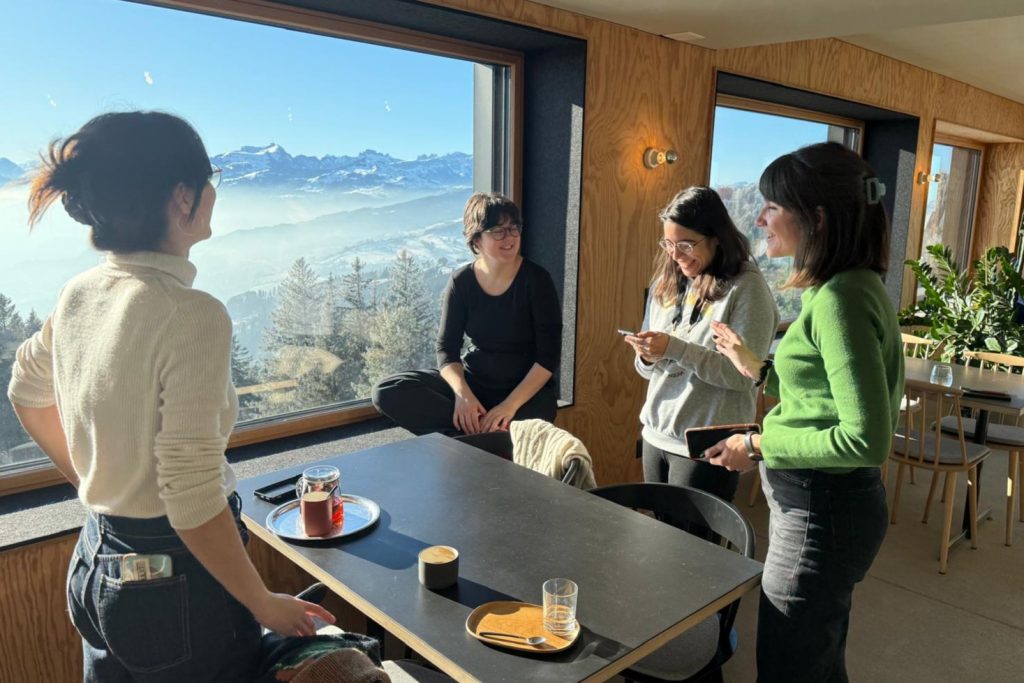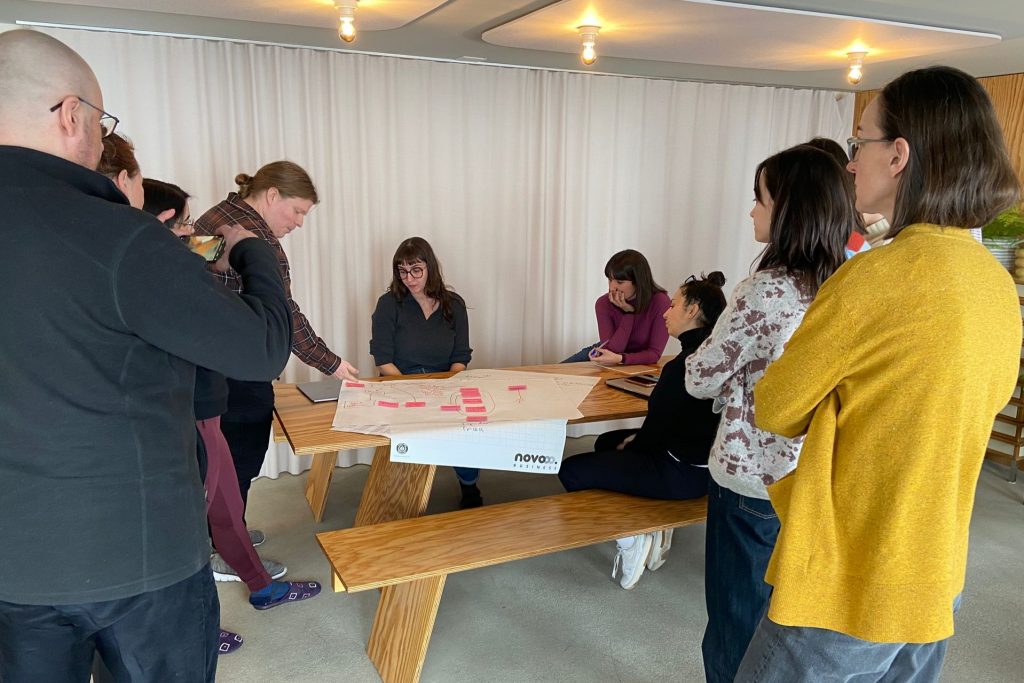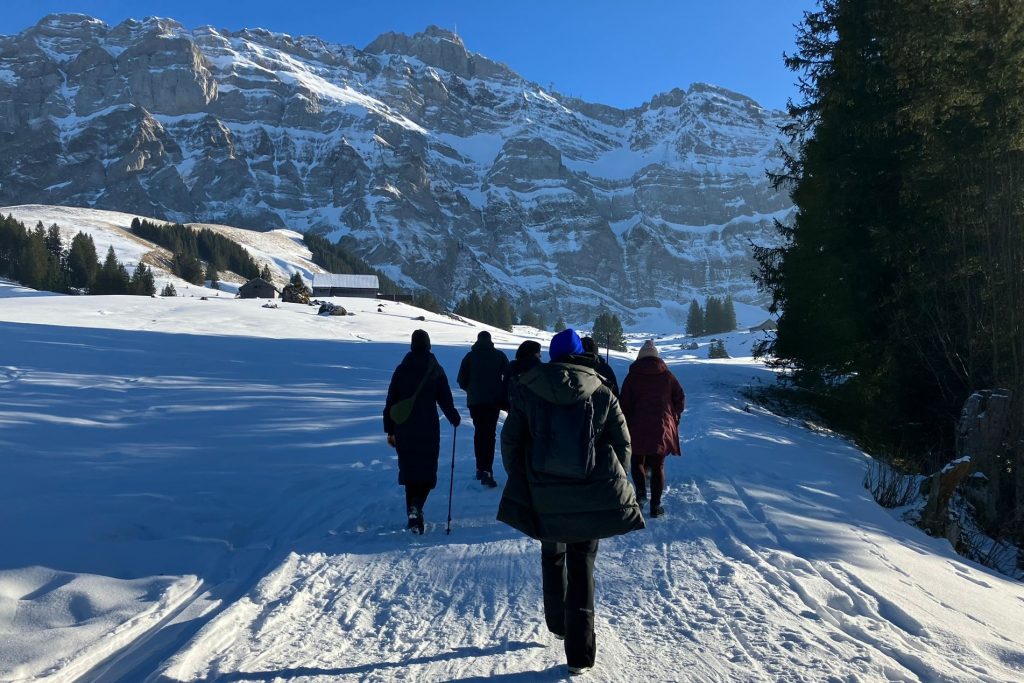
NEWS


NEWS
Published
Dr Isabel Villegas Simón (Postdoctoral Researcher at the Universitat Pompeu Fabra) discusses the third ReDigIm consortium meeting which was held in Switzerland on 16-17 January 2025.

Alpenhof is a restaurant, hotel, and library located in the Swiss municipality of Oberegg, at 1,110 metres above sea level, surrounded by the beautiful Rhine Valley. It was the venue for the third consortium meeting of the ReDigIm project, where we shared and discussed data from the third work package (interviews and participant observation with civil society groups) and planned the final one (scenario development workshops). Getting there took quite a journey, requiring at least three types of transportation: a flight from our home countries, a tram to Zurich city centre, a train to St. Gallen, and two buses to reach Alpenhof. However, once we arrived, the stunning landscape made the trip feel well worth it. On our first night, we unpacked and settled in, then had the chance to explore the place, especially its cozy and inspiring bookstore and common areas.

We started our first day of intense work by focusing on the preliminary results of work package three. The first session was led by the lead researchers from Switzerland and Montenegro, Moritz Ege and Čarna Brković. Unfortunately, Čarna could not attend in person and had to participate remotely. During the session, each national team gave a brief presentation of the main results from their fieldwork with civil society groups. These presentations were followed by small group discussions, where we synthesized the results, raised questions and identified common themes. To make the session more dynamic and productive, after each team’s presentation, we broke into small groups to discuss a relevant topic and create mind maps to deepen our understanding.
The session was intense and productive, allowing us to identify the key themes that traverse the different national contexts. Using digital technologies to enhance a group’s ‘visibility’ emerged as a central theme, as did the labour involved in creating and maintaining a digital presence. We also explored the significance of the present conjuncture in understanding the groups’ prosocial and redistributive practices. In the end, we worked intensively on multiple themes, each of which was summarised on a paper poster and displayed around the main room where we worked.

The second day focused on taking the first steps towards work package four, where we will develop scenarios based on the redistributive imaginaries we identify. This session was led and facilitated by the Principal Investigator, Rebecca Bramall. Rebecca began by reiterating our approach to imaginaries and how we could represent them through scenarios. We then moved onto collectively begin the preliminary task of sketching out imaginaries and scenarios.
We also had time to enjoy and explore the stunning landscape around us. After the last work session, we went on a two-hour hike through the snow, crossing breathtaking mountains. Our destination was a cozy restaurant where we enjoyed a traditional local cake and a warm drink. The return journey, our final walk, took us along a path lit by small torches as the sun set.

To end, I would like to express our sincere gratitude to the hosts at Alpenhof, Dominic and Laura, who welcomed us with great kindness and warmth, prepared delicious meals, and even provided a sauna and a fireplace, making our stay even more comfortable and enjoyable.